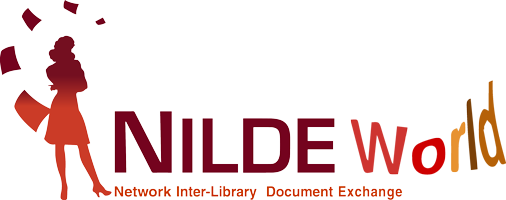The establishment in 2004 of the NILDE Rules and Regulation has truly sped up the growth of NILDE. The Rules are the common framework libraries agree to comply to. Libraries commit to:
a) Supply documents on a reciprocal basis.
b) Facilitate access to their holdings, through their participation in at least one of the national union catalogs or meta-OPAC.
c) Supply documents within 2 days (average) and 5 days (maximum).
d) Supply documents at no charge and, in case of heavy usage, ask for a one-off payment at the end of the year.
e) Distribute their borrowing requests equally among all libraries (and send a maximum of 5 requests per week to a single library).
Reciprocity of the DD service (point a) is the most important point of the Rules and Regulations and is the building block of the ILL cooperation: indeed it identifies the commitment of each individual towards the whole network. The scope of such a commitment was initially a very controversial issue: in fact, NILDE could have been used by separate groups of libraries as simply a software tool or could have become a common base for broad and national cooperation. The choice to create one broad cooperative network has proven to be the right one.
Point b of the Rules states that libraries must make their holdings visible to the whole community by actively joining at least one national catalogue (in a previous version of the Rules, this point was framed as a recommendation, not as a duty). In case they do not participate in any union or national catalog, libraries are given a one-year grace period in order to be able to comply to this rule. By actively joining the national catalogs, libraries commit themselves to supplying a quality service, rather than just using it.
Point c of the Rules commits libraries to guarantee promptness of response. Libraries agree to supply documents at no charge and, in case of heavy usage, ask for a one-off payment at the end of the year (point d). The goal of this policy was to simplify all the administrative procedures due to payment transactions thus avoiding unnecessary overburdening of staff. Point e invites participants to distribute the requests among all the possible suppliers equally.
These are the rules the community has imposed on itself and, we can say today, have been one of the key factors in its success. The Rules and Regulation are periodically revised, to make sure they are adequate to meet the needs of the whole community. For instance, at present there is an international working group working on a possible extension of the Rules to cope with international libraries membership.
